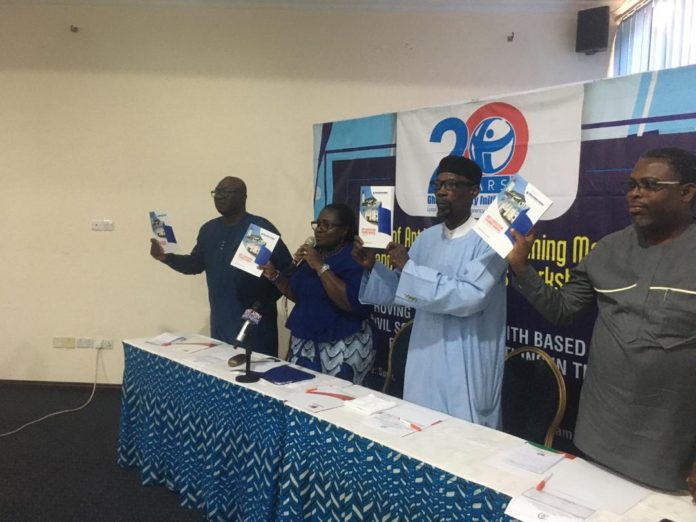
The Ghana Integrity Initiative (GII), the local chapter of Transparency International, has launched an anti-corruption training manual designed to equip faith-based religious leaders on corruption and its dangers.
The launch, which was done in Accra on Wednesday, was followed by a training session to equip stakeholders such as pastors, imams, sheikhs and the media, who would in turn pass the lessons learnt on to their congregation and followers.
According to GII, its ‘anti-corruption ambassadors’ and faith-based organistions, who it is working with under the DANIDA support, would have the document as a reference point with which they could conduct trainings at mosques and churches amongst others.
The manual covers modules including understanding corruption, legal framework for anti-corruption, anti-corruption strategies, the role of non-state actors under National Anti-Corruption Action Plan (NACAP) and reporting corruption.
Mrs Linda Ofori-Kwafo, Executive Director, GII, said her organisation is trying to bring the anti-corruption training to many people in the country.
“We realize that Ghanaians are very religious and about 90 per cent of either go to the mosque on Fridays or are at the Church on Sundays,” she said.
“These people are the same that work in the public institutions, the private sector organizations. We know our religious leaders are very influential people, people actually follow them and live by what they teach them.”
Mrs Ofori-Kwafo said: “So then we are trying to reach many more people with the anti-corruption message. We are trying to tell them what corruption is, what the negative impact is but then we have to actually acknowledge and recognise that the religious organisations and bodies provide a very big platform that we can actually use to get this message.
She said under their project, which was supported by DANIDA called ‘Speak up, Resist, and Report Corruption’, they have been able to design a training manual and that they were training religious leaders on the use of them.
Mrs Ofori-Kwafo said the aim of the manual was to share knowledge, to build the capacity of key partners and empower citizens to speak up, resist and report corruption.
The objectives are to enlist the support of faith based religious leaders, civil society and the media in raising awareness and also to build the capacity of the faith based organisations and civil society organisations to report and address corruption as required.
Source: GNA

